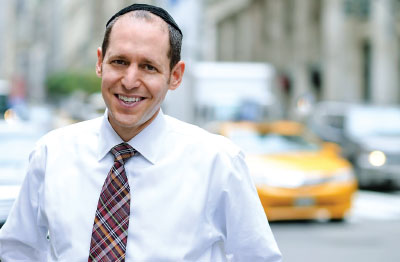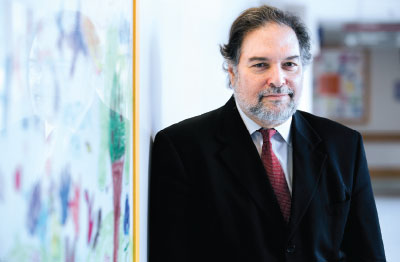Experts to Discuss Spirituality at Presidential Symposium
Abstract
The session will address spiritual issues in treatment and how collaborating with faith communities can enhance care.
Throughout the 20th century, the mental health disciplines were reluctant to turn to spiritual traditions for solutions, but that’s changing with increased recognition of the importance of spirituality in mental health. Experts will summarize recent research on this hot topic at the Presidential Session “Spirituality and Mental Health: A New Frontier for Promoting Emotional Wellness?” on Monday, May 20.

Session chair David H. Rosmarin, Ph.D., A.B.P.P., says it’s time for psychiatry to study whether spirituality can provide a “new frontier” for promoting emotional wellness.
“Spirituality and mental health have had a tense history. From Freud’s openly anti-religious views to reductionistic perspectives of modern biological psychiatry, we often ignore this domain. The reality is that the statistical majority of our patients and the world consider spirituality very important when it comes to mental health,” session chair David H. Rosmarin, Ph.D., A.B.P.P., told Psychiatric News. He is director of the Spirituality and Mental Health Program at McLean Hospital and an assistant professor in the Department of Psychiatry at Harvard Medical School.
“The vast majority of Americans profess spiritual beliefs and utilize this domain to cope with emotional distress. Indeed, clergy are nearly twice as likely to receive referrals for mental health conditions than psychiatrists,” said Rosmarin.
Rosmarin will begin the session with a discussion of the positive and negative effects of spiritual or religious practice on mental health and provide an evidence-based conceptual framework for addressing spiritual issues in treatment.
Next, former APA President Paul Summergrad, M.D., the Dr. Frances S. Arkin Professor and chair of the Department of Psychiatry at Tufts University School of Medicine, will discuss existential suffering and mental disorders.
“I’ll discuss what the boundaries are and when the antenna should go up and faith leaders should make a referral to a mental health professional,” Summergrad said. He will also discuss how psychiatrists should take note of their patients’ spirituality.

Psychiatrists need to understand what role faith plays in their patients’ lives, says former APA President Paul Summergrad, M.D. That knowledge will help inform the treatment process.
“It’s important for psychiatrists to understand what role faith plays in their patients’ lives and that, for some patients, religious communities or other expressions of spirituality can be part of a mental health delivery system,” Summergrad said.
Sidney Hankerson, M.D., M.B.A., co-director of the Columbia University Wellness Center and an assistant professor of clinical psychiatry at Columbia University Vagelos College of Physicians and Surgeons, will offer insights on how mental health professionals and faith communities can enhance access to care. He will describe how a community-based participatory approach addressed racial disparities in mental health care with a coalition of black churches in New York City.
“Racial disparities in mental health treatment are well documented. However, black churches have provided ‘de facto’ mental health services for decades through pastoral counseling, social support, and referrals to care. Since African Americans have the highest rates of church attendance among all racial/ethnic groups in the United States, it is vital to engage faith communities in mental health promotion efforts,” said Hankerson.
“I will explore how expanding access to mental health services through partnerships with faith-based organizations appears to be a promising approach to promote mental health equity and integrate cultural preferences,” Hankerson added.
APA President Altha Stewart, M.D., will be the discussant for the session. ■
“Spirituality and Mental Health: A New Frontier for Promoting Emotional Wellness?” will be held on Monday, May 20, from 3 p.m. to 4:30 p.m.



